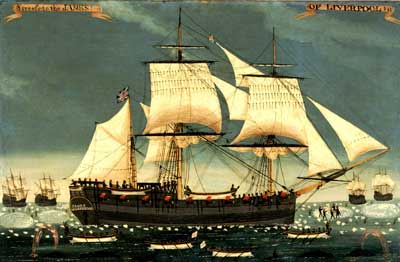
Example
Suppose we are about to start upon a voyage. The owner of the vessel gives us a book of directions, telling us that it contains instructions sufficient for our whole journey, and that if we will heed them, we shall reach in safety our port of destination.
Setting sail, we open our book to learn its contents. We find that the author lays down general principles to govern us in our voyage, and instructs us as far as practicable, touching the various contingencies that may arise, till the end; but he also tells us that the latter part of our journey will be especially perilous; that the features of the coast are ever changing by reason of quick-sands and tempests; “but for this part of the journey,” says he, “I have provided you a pilot, who will meet you, and give you such directions as the surrounding circumstances and dangers may require; and to him you must give heed.”
With these directions we reach the perilous time specified, and the pilot, according to promise, appears. But some of the crew, as he offers his services, rise up against him. “We have the original book of directions,” say they, “and that is enough for us. We stand upon that, and that alone; we want nothing of you.”
Who now heed that original book of directions? those who reject the pilot, or those who receive him, as that book instructs them? Judge ye.
But some . . . may meet us at this point like this:
It is to forestall any efforts in this direction that this sentence is penned. We say no such thing. What we do say is distinctly this: that the gifts of the Spirit are given for our pilot through these perilous times, and wherever and in whomsoever we find genuine manifestations of these, we are bound to respect them, nor can we do otherwise without insofar rejecting the Word of God, which directs us to receive them. Who now stand upon the Bible, and the Bible alone?— Ibid. 2BIO 25
Uriah Smith